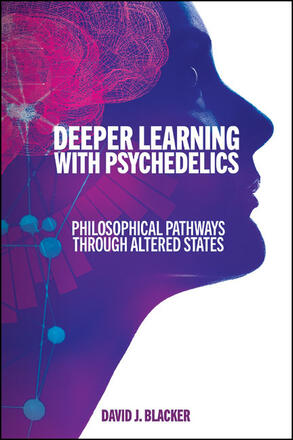
Deeper Learning with Psychedelics
Philosophical Pathways through Altered States
Through a philosophical lens, this book explores the powerful educational capabilities of classic psychedelics.
Description
In both clinical and informal settings, psychedelics users often report they have undergone something profound and even life-altering. Yet there persists a confounding inability to articulate just what has been imparted. Informed by multidisciplinary emerging research, this book provides an account of the specifically educational aspects of psychedelics and how they can render us ready to learn. Drawing from indigenous peoples worldwide who typically revere these substances as "plant teachers" and from canonical thinkers in the western tradition such as Plato, Spinoza, Kant, and Heidegger, the author proposes an original set of categories through which to understand the educational capabilities of "entheogens" (psychedelics with visionary qualities). It emerges that entheogens' real power lies not in destabilizing and decentering—"turning on and dropping out"—but as powerful aids in restoring and reenchanting our shared worlds.
David J. Blacker is Professor of Philosophy of Education and Legal Studies at the University of Delaware. He is the author of Democratic Education Stretched Thin: How Complexity Challenges a Liberal Ideal, also published by SUNY Press, among other books.
Reviews
"Blacker is known for highly original thinking in the field of philosophy of education. … The book [is] a model of educational thinking, but … the audience for the book is much more expansive, in keeping with the nascent field of psychedelic studies itself. … The book also speaks powerfully to considerations of deeper learning in general." — Natasha Levinson, Kent State University
"A terrific new contribution to our field. The educational potential of psychedelic drugs is a surprisingly interesting topic, but … it has been completely ignored. ... The topic may seem to some to be fringe and/or taboo, but this conclusion is incorrect (as Blacker demonstrates)." — David Waddington, Concordia University